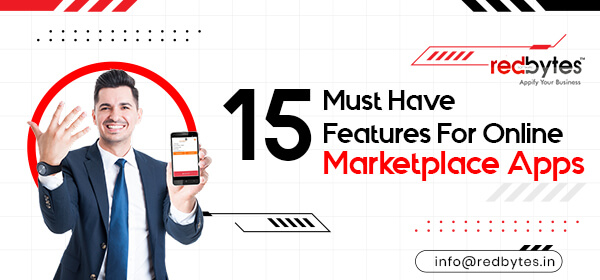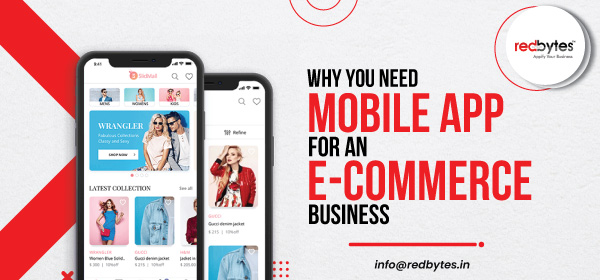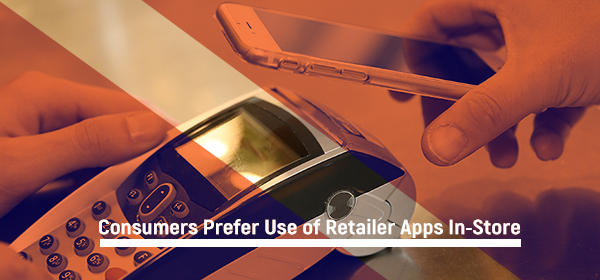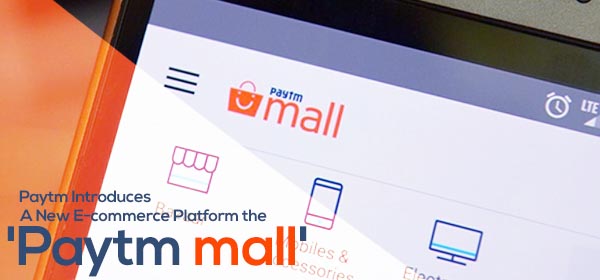As they say, word-of-mouth is a powerful tool any business can have. To enable this tool, all you need to create is an exceptional user experience for your end users. This is the principle many startup as well as successful ecommerce companies have adopted for their mobile apps. As nearly 85% of consumers rely on mobile applications to conduct online transactions, businesses must understand the potential of delivering pleasant user experience in their marketplace apps.
Mobile technologies provide heroic help in creating a clean and custom infrastructure for cutting-edge mobile apps for online marketplaces. The biggest challenge is to use technology to build a responsive and interactive app feature that engages customers completely. So what are the features for typical online marketplace apps that boost revenue?
Based on our experience and insight, we have presented the 15 must-have essential features to be noted while marketplace app development:
1. Spectacular Brand Logo
Logo symbolizes trust and brand commitment for online stores. A clear and outstanding logo can also be used to define business promises and identity for online marketplace brands. Built perfectly, it has reassuring qualities and trust value that help attract more users.
Popular brands can create a sleek and fashionable homepage with minimalist features, logo and a captivating image and video that can also persuade visitors to tap on ‘Buy’ button.
2. Simplified and Straightforward on-boarding
Not every customer loves the concept of filling long forms for registration or sign up process that demands a lot of information. Amazon is a typical example of globally celebrated ecommerce app that keeps things simple and easy from sign up to checkout.
Like Amazon, you can allow users to explore and sign up only at the checkout. They can sign up using their email or mobile number with provision to save information for future use. The simplicity and straightforwardness of user onboarding helps keep buyers hooked and get them through checkout process.
3. Effortless Navigation
Nobody likes to see their space cluttered with uninteresting or useless elements. Your marketplace app should also be deprived of unnecessary distractions that may obstruct user’s journey. To enable smooth and neat navigation, the content of the app has to be optimized for the screen size of mobile screen (which is always limited). Hence, don’t cram mass of content on a small device. Make the app design responsive to automatically adjust to any given screen. Instead, emphasize on having an uncluttered design that encourages seamless navigation. Display your brand products in a clean layout.
4. Use Rich Customization
Users download a mobile app with an intent to take action and achieve the target in minimum time with minimum hassle. Online ecommerce customers also expect an excellent personalized experience while finding the best deals possible.
Customization is key to enabling rich user experience with engaging elements tailored only for specific users. Make sure your app has unique customizable features that complement user preferences and attitude to build a lasting relationship.
5. Search Box For Easy-to-Find Convenience
If your online marketplace app is really huge and showcases a wide variety of products and items, it is vital to have a search box option that helps customers seek and discover the desired item in little time. Customers who especially prefer your store to a specific product, should be able to find what they need without juggling much with keywords.
6. Latest Attractions and Trending Products
In the time of sales spree or exciting events, make it easy for buyers to know about it right there on the home page. When buyers enter your app, they must be presented with the best offers immediately so that they won’t have to struggle to get to the exclusive deals.
7. Payment System Icons
Now that we are living in a highly dynamic, globally connected world, ecommerce apps can get orders from customers located in any part of the world. And users prefer an effortless payment system including credit cards, debit cards, digital wallets, PayPal or COD. These are primary options for online transactions whose icons can be displayed clearly at the top corners or somewhere near landing page banners or alternatively in a menu section.
8. Online Chat
Customers tend to rush to a customer support at the moment of need. This is why it becomes essential to include the feature of live chat or 24/7 hotline for your online store. Customers appreciate online shops that provide value-added customer service for pre-sale and after-sale problems. People usually go online and explore marketplace apps after workhours, so they expect their inquiry to be handled round the clock.
9. Irresistible Deals and Alluring Temptations
You have only a few seconds to please and coax users who are always quick to judge your app the moment they enter. To beat the competition and capture their interest, make a deal they can’t resist. People feel excited about lower prices and discount offers or even free gifts. you can make they buy under ‘Sale’ tag during peak shopping seasons
10. Reviews and Ratings
It is impossible to go forego this feature for online marketplace app. Reviews and ratings are meant to help customers understand the market scenario. It develops certain clarity and trust between a publisher and customers. With this feature in place, customers are able to express and see their views on listings and sellers can implement a strategy based on user comments.
Read also : Why You Need Mobile App For an E-Commerce Business
11. Push Notifications
Push notifications feature is crucial to making the ecommerce mobile app business successful and profitable. This is one of the undeniable features incorporated by today’s many established online marketplaces.
Push notifications instill instant interest in users and have subtle ability to inspire quick action by psychologically tempting them. You may include time-sensitive offers like hourly promotions, coupons, bank-related discounts or new product launches.
12. Social Media Buttons
After on-site reviews and ratings, online s made by users are often attributed to social media visits. Approximately, 20% of ecommerce s are fulfilled based on what people have to share about d products.
Facebook and Twitter are a few reliable sources for honest general public opinions on everything online. Apart from this, online community on social platforms can drive lead generation based on active prospects. This is why online shops must integrate social buttons.
13. Accurate Product list Management
The way your products are listed and managed on marketplace app matters to a great extent. Sellers must be able to publish and manage the items effortlessly. More accurate the product list is, more there is a chance for visitors to easily locate what they need as they enter your app.
Today, ecommerce mobile app developers have evolved enough to implement superior functionality for product listing (add, view, publish, edit) on marketplace apps which helps customers search, use filters and view detailed info.
14. Security
Security has become a top concern for all digitally powered online solutions. No wonder why GDPR for EU clients came into existence. With personal data being at risk of loss, customers and vendors will not feel confident about joining your online marketplace.
For modern ecommerce marketplaces that process payment details of customers must comply with encryption practices such as SSL digital certificates and PCI compliance. Application of both in your online platform ensures strict data protection and inviolable connections with server.
15. Analytics
From seller’s perspective, having an online business presence is not just about delivering superior user experience, but also about generating constant revenue and keeping customers clung to their business. Analytics assist online shop owners satisfy this motive by offering the clear insight into behavior pattern, buying tendencies, session time, click-through rate, page views and more. This buying scenario displayed by powerful analytics helps make better decisions.
Read also : How Apps Are Changing the World
Conclusion
While building a marketplace app, you should always keep customers in focus as they are the ultimate drivers of growth. Your online store app, therefore, needs to deliver immersive and interactive user experience with features that stand out from other niche apps in similar market.
Make every attempt to enable simple, intuitive and seamless shopping journey for customers, which eventually pays off in form of increased sales and revenue.









